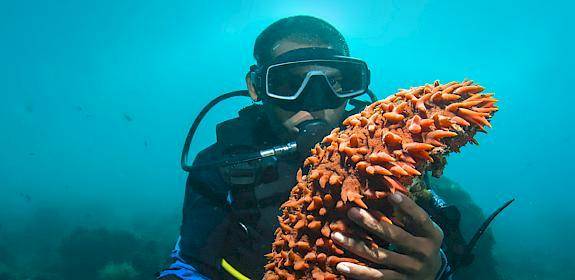Notes:
- Originating 200 million years ago, sturgeons have outlasted the dinosaurs, but today are the most threatened animals on the IUCN red list of threatened species. Overfishing - principally for caviar - is the biggest cause for concern, but cutting off sturgeon migration routes, habitat alteration, and pollution are further contributing causes. However, according to the World Sturgeon Conservation Society, the Danube is the only large river system in Europe where protection of existing but dwindling sturgeon stocks is still possible.
- Due to its high price and rarity, caviar - one of the most expensive wildlife products - is often traded illegally. Among the sturgeon species native to the Danube is the Beluga Sturgeon, famous for its expensive caviar.
- The Black Sea is one of the most important sturgeon fisheries in the world, second only to the Caspian Sea. The Danube, as one of the major feeder rivers and estuaries of the Black Sea, is crucial for sturgeons. Fishing and export of sturgeon and sturgeon products of wild origin was banned in Romania in 2006 and in Bulgaria in 2011. The current ban ends at the end of 2015 in both countries.
WWF

WWF is an independent conservation organization, with over 30 million supporters and a global network active in over 100 countries. WWF's mission is to stop the degradation of the Earth's natural environment and to build a future in which humans live in harmony with nature, by conserving the world's biological diversity, ensuring that the use of renewable natural resources is sustainable, and promoting the reduction of pollution and wasteful consumption. Visit www.panda.org/news for the latest news and media resources and follow us on Twitter @WWF_media.





